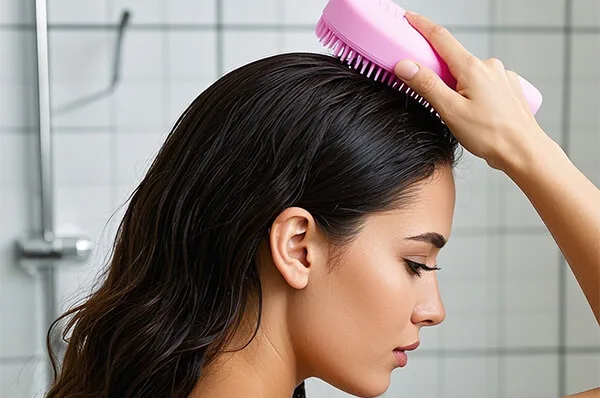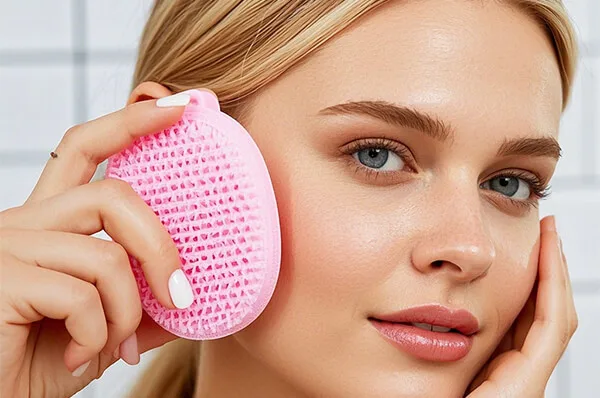- Have any questions?
- +86 19574832024
- admin@beaut-lohas.com
In the world of hair and scalp care, silicone scalp massagers have emerged as a popular item. But when it comes to the professional opinion of dermatologists, there is a multifaceted view.
To start with, numerous dermatologists are in favor of silicone scalp massagers for several compelling reasons. One of the key advantages lies in their ability to enhance blood circulation throughout the scalp. The gentle action of the massager’s silicone bristles or nodes stimulates the blood vessels in the scalp. This increased blood flow is like a life – giving elixir for the hair follicles. Nutrients such as vitamins, minerals, and oxygen are transported more efficiently to these follicles. As a result, it can lead to stronger, healthier hair growth. For instance, people experiencing mild hair thinning due to poor circulation may notice a reduction in hair loss over time with regular use of these massagers.
Another significant benefit is related to the distribution of sebum, the natural oil produced by the scalp. A well – functioning silicone scalp massager can ensure that sebum is spread evenly across the scalp. This is crucial as it maintains the scalp’s moisture balance. A balanced, moisturized scalp is less likely to develop dryness, which is often a precursor to dandruff. When used during the shampooing process, these massagers also play a vital role. They enable the shampoo to reach every nook and cranny of the scalp, maximizing its cleansing potential. This thorough cleansing helps in removing dirt, excess oil, and product buildup that can clog the hair follicles and impede healthy hair growth.
Nevertheless, dermatologists also offer some cautionary notes. Hygiene is of utmost importance when it comes to silicone scalp massagers. If not cleaned regularly and thoroughly, these massagers can become a breeding ground for bacteria, fungi, and other harmful microorganisms. This accumulation can be transferred back to the scalp during subsequent use, potentially causing a host of problems. Folliculitis, an inflammation of the hair follicles, is one such issue that can arise. Additionally, the way the massager is used matters significantly. Using excessive force or pressure during the massage can cause irritation to the scalp. This is especially concerning for individuals with sensitive skin or pre – existing scalp conditions. Those with psoriasis or eczema may experience flare – ups if the massager is used too vigorously. In some cases, the repeated friction from an overzealous massage can even cause minor abrasions on the scalp, which can then become infected.
In summary, silicone scalp massagers can be a valuable addition to one’s hair and scalp care routine when used with care. Dermatologists emphasize the need for proper cleaning and gentle application. It’s essential to be attuned to any signs of discomfort or adverse reactions from the scalp. If there are any concerns, such as persistent itching, redness, or an increase in hair loss, it’s advisable to consult a dermatologist promptly. By following these guidelines, individuals can harness the potential benefits of silicone scalp massagers while minimizing the associated risks.




